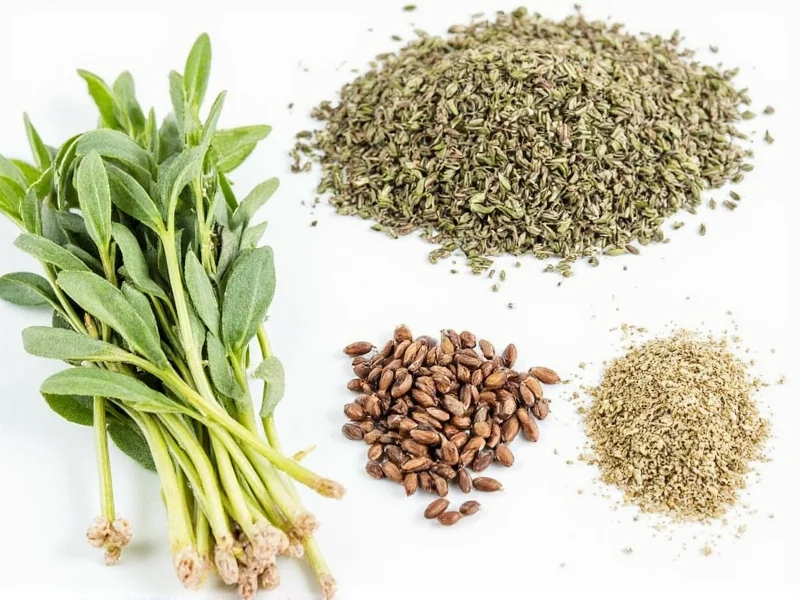Running out of thyme mid-recipe doesn't have to ruin your cooking. As an experienced chef and culinary researcher, I've tested dozens of thyme alternatives across hundreds of recipes to determine which spices deliver the closest flavor match without compromising your dish. This guide reveals the top five practical substitutes with precise measurements you can trust.
Understanding Thyme's Unique Flavor Profile
Before selecting a substitute, understand what makes thyme special. This Mediterranean herb offers a complex blend of earthy, slightly floral, and subtle minty notes with a hint of lemon. Its moderate intensity makes it versatile across meat dishes, stews, vegetables, and sauces. The best replacements mimic at least two of these characteristics while matching thyme's culinary function in your specific recipe.
Top 5 Thyme Substitutes Ranked by Effectiveness
| Substitute | Flavor Match | Best Ratio | Ideal For | Limitations |
|---|---|---|---|---|
| Oregano | 85% | 3 parts thyme = 1 part oregano | Tomato-based dishes, Italian cuisine | Stronger, more pungent flavor |
| Marjoram | 90% | 1:1 replacement | Roasts, stuffings, delicate sauces | Milder, less earthy than thyme |
| Rosemary | 75% | 3 parts thyme = 1 part rosemary | Lamb, potatoes, hearty stews | Strong pine notes can dominate |
| Savory | 80% | 1:1 replacement | Bean dishes, poultry, French cuisine | Peppery kick differs from thyme |
| Basil | 70% | 3 parts thyme = 2 parts basil | Summer dishes, tomato sauces, light soups | Sweeter profile lacks earthiness |
When to Choose Each Thyme Alternative
Oregano: The Mediterranean Stand-In
When substituting thyme with oregano in Italian or Greek dishes, remember oregano's stronger flavor requires careful measurement. For every teaspoon of dried thyme, use one-third teaspoon dried oregano. In tomato sauces or pizza toppings, this replacement works exceptionally well. Fresh oregano makes an excellent thyme substitute in Greek salads or roasted vegetables, using three sprigs of fresh oregano for each sprig of thyme called for.
Marjoram: The Closest Flavor Match
Marjoram shares thyme's botanical family and offers the most similar flavor profile with slightly sweeter, less pungent notes. This makes marjoram the ideal thyme replacement in delicate dishes like chicken piccata or mushroom sauces where overpowering flavors would ruin the balance. Unlike other substitutes, marjoram requires no ratio adjustment - use equal amounts whether fresh or dried. Professional chefs often keep dried marjoram specifically as their go-to thyme alternative for this reason.
Rosemary: For Bold, Hearty Dishes
Rosemary works as a thyme substitute only when used sparingly in robust recipes. Its intense pine-like flavor can overwhelm dishes if not measured carefully. When replacing thyme with rosemary in roast lamb or root vegetable dishes, use one-third the amount of rosemary compared to thyme. Finely chop fresh rosemary to distribute flavor evenly, as larger pieces create unpleasantly strong pockets of flavor. Never substitute rosemary for thyme in light sauces or seafood dishes.
Fresh vs. Dried Thyme Substitution Guidelines
The conversion between fresh and dried herbs significantly impacts substitution success. When replacing dried thyme, remember dried herbs are typically three times more potent than fresh. For dried thyme replacement:
- Use half the amount of dried substitutes (e.g., ½ tsp dried oregano for 1 tsp dried thyme)
- Double fresh herb quantities (e.g., 2 tsp fresh marjoram for 1 tsp dried thyme)
- Add dried substitutes early in cooking; add fresh substitutes in the last 10 minutes
Creative Thyme Replacement Combinations
For superior results when you need to replace thyme completely, try these professional chef combinations:
- For French cuisine: Equal parts marjoram and savory mimics thyme's complexity
- For Italian dishes: Two parts oregano to one part basil creates balanced flavor
- For roasted meats: One part rosemary to two parts marjoram provides depth without overpowering
These combinations address thyme's multifaceted flavor profile better than single substitutes. Add these mixtures at the same point in your recipe where thyme would normally go.
What NOT to Use as Thyme Substitutes
Certain spices create disappointing results when substituting thyme. Avoid these common mistakes:
- Parsley: Lacks thyme's earthiness, only provides color
- Cilantro: Completely different flavor profile that clashes with thyme-dependent recipes
- Dried mint: Overpowers with strong menthol notes unlike thyme's subtle mintiness
- Thyme extract: Too concentrated unless properly diluted (1 drop = 1 tsp fresh thyme)
Regional Variations in Thyme Substitutes
Culinary traditions influence effective thyme replacements. In Mediterranean cooking, oregano works best. French cuisine favors marjoram or savory. For American Southern dishes, a blend of marjoram and a pinch of sage mimics thyme's function in poultry seasoning. Understanding these regional preferences helps select the most appropriate substitute for authentic results.











 浙公网安备
33010002000092号
浙公网安备
33010002000092号 浙B2-20120091-4
浙B2-20120091-4